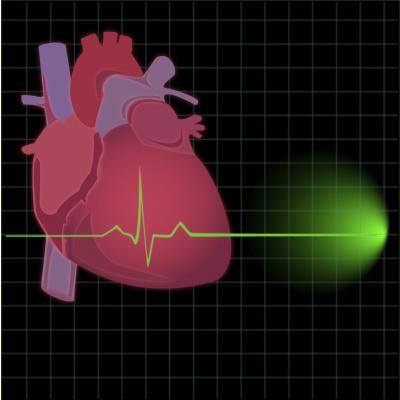
December 17, 2012 — BioControl Medical has announced that the pilot clinical study of its CardioFit vagus nerve stimulation system has been recognized as seminal original research in the European Journal of Heart Failure. According to a recent editorial, “the highly cited open-label phase II study [of the CardioFit] by De Ferrari et al. demonstrated for the first time that chronic vagus nerve stimulation is associated with improvements in New York Heart Association (NYHA) class, six minute walk test, left ventricular ejection fraction, and systolic volumes up to one year, setting the stage for further investigations and clinical trials in this new era of device thearapy.”[1,2]
Conducted in Italy, Germany, The Netherlands and Serbia, the multi-center pilot clinical study of the CardioFit was designed to assess the six-month safety and clinical response to the therapy in 32 patients with NYHA II-IV heart failure on optimized background medical therapy. Study data showed that patients experienced sustained significant improvement across key clinical and self-reported quality of life measures at six and 12 months.[2] Results of the original pilot study were published in the European Heart Journal in April 2011.
“It is extremely gratifying to see our work not only published in the European Heart Journal but also recognized for its impact by the European Journal of Heart Failure,” said Dr. Goran Milasinovic, a CardioFit pilot study investigator at the Clinical Center of Serbia in Belgrade. “Vagus nerve stimulation has proven to be a very exciting new area of exploration in the treatment of heart failure, with additional clinical study of its potential benefits now well underway.”
More recent clinical research on the CardioFit includes an extension of the pilot study that continued to follow 19 patients. Presented at the American Heart Association Scientific Sessions 2012 in November, the results of the extended study showed that the CardioFit’s favorable clinical effects — as demonstrated by improved hemodynamics, quality of life and six-minute walk test — were maintained in patients beyond the study’s original six- and 12-month evaluation points, up to 24 months.[3] Patient follow up now extends beyond four years, with good therapy tolerance and no reported safety issues.
In addition, the safety and efficacy of the CardioFit is being explored further in the INOVATE-HF (INcrease Of VAgal TonE in Heart Failure) global, multi-center, investigational device exemption (IDE) clinical study. Initiated in April 2011, INOVATE-HF is a prospective, randomized, controlled clinical study that will evaluate the system’s potential to reduce hospitalization and death among patients with HF, while also exploring whether combined treatment with CardioFit and prescription drug therapy is more effective than drug therapy alone.[4]
“The INOVATE-HF study is an important pivotal trial that may ultimately position vagus nerve stimulation as a valuable new therapeutic option for patients with HF,” said Douglas Mann, an INOVATE-HF study investigator at Washington University School of Medicine in St. Louis, Mo. “We are encouraged that our colleagues in Europe have validated the breakthrough nature of the earlier research and the need for additional study of the CardioFit in a broader population of patients.”
The CardioFit system consists of a stimulator, a sensor lead and a stimulation lead, which are implanted under the skin of the chest. The sensor lead is extended from the stimulator to the right ventricle of the heart, and the stimulation lead is extended from the stimulator to the vagus nerve on the right side of the neck. Once activated, the stimulator’s electrical pulses are transferred via the stimulation lead to the vagus nerve. At the same time, the sensor lead monitors changes in heart activity and turns stimulation on or off accordingly. Like a pacemaker, the CardioFit System can be programmed on and off via external wireless communication with the device.
For more information: www.biocontrol-medical.com
References
1 Luscher, TF, et al. “The European Heart Journal and the European Journal of Heart Failure: partners in scientific publishing.” European Journal of Heart Failure (2012) 14, 1075–1082
2 De Ferrari GM, Crijns HJ, Borggrefe M, Milasinovic G, Smid J, Zabel M, Gavazzi A, Sanzo A, Dennert R, Kuschyk J, Raspopovic S, Klein H, Swedberg K, Schwartz PJ. “Chronic vagus nerve stimulation: a new and promising therapeutic approach for chronic heart failure.” Eur Heart J (2011) 32 (7): 847-855.
3 Dennert R, et al. “Long-term Benefits of Vagal Nerve Stimulation Therapy in Heart Failure.” American Heart Association Scientific Sessions 2012.
4 Hauptman PJ, Schwartz PJ, Gold MR, Borggrefe M, Van Veldhuisen DJ, Starling, RC, Mann DL. “Rationale and study design of the INcrease Of Vagal TonE in Heart Failure study: INOVATE-HF.” American Heart Journal (June 2012) 163 (6): 955-962.


 January 05, 2026
January 05, 2026 









